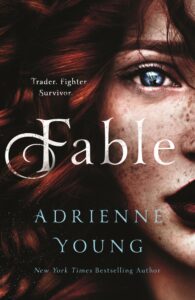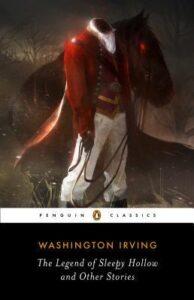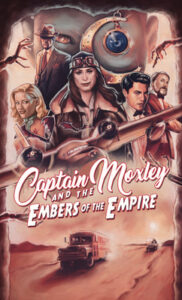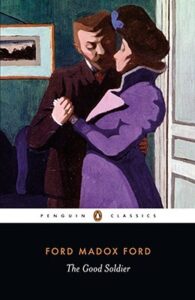
Halfway through September is a good time to do an August wrap up, yes? Time is such a weird thing with the pandemic, and I’m also still struggling about how I want to do this blog, but the more I think about it, the more I just need to do what I want, when I want, and if there’s a week of posts every month, then that’s the case! I know I wanted to do some writing for blog posts and otherwise last week, but with how things lined up at work, I ended up working nine days in a row with little to no time to myself, so that threw me off. I want to try to do three or four posts a week, and if I can schedule/write out a post or two a night, I can keep things on track.
Lately with the weather here in Colorado getting colder, I find myself more interested in keeping up this blog (but who knows how long that enthusiasm will last??), but I have to keep reminding myself that I’m writing for me and really no one else, because I like looking back on what I’ve read and how I thought about the things I read. I think ultimately I’m struggling with social media and Instagram in particular, because while that’s easier in a sense, I don’t feel like I’m getting much out of it anymore. I know I like buying books and collecting books, but I need to actually read them too. I also am making plans to clear out my shelves, reorganize, and weed out everything so that I feel motivated to read what I haven’t read and get rid of what I know I won’t read any time soon. With the library and places to buy used books, I know that if I ever want to read what I’ve let go of I know there will be opportunities to read them again in the future.
I’m also in the process of planning out my 2021 book bullet journal and tying in a book thoughts journal to go with it. I read a lot of books I don’t end up reviewing for one reason or another, but I would like to keep a personal book journal to have a physical thing to refer to in the future if anything happens to the internet!
I haven’t made much progress on any of my challenges and have been reading what I’ve been drawn to, and in August, that was a lot of shorter, easier reads because August felt more stressful with more full days than other months.
In August, I read:
- The Goblin Emperor, by Katherine Addison
- Letter From Birmingham Jail, by Martin Luther King, Jr.
- The A.I. Who Loved Me, by Alyssa Cole
- The Binding, by Bridget Collins
- The Duke’s Stolen Bride, by Sophie Jordan
- Television Was a Baby Crawling Toward that Deathchamber, by Allen Ginsberg
- Sisters of the Vast Black, by Lina Rather
- The Times I Knew I Was Gay, by Eleanor Crewes
- Sex and Vanity, by Kevin Kwan
- The Scandal of It All, by Sophie Jordan


 Title:
Title: 
 In the bosom of one of those spacious coves which indent the eastern shore of the Hudson, at that broad expansion of the river denominated by the ancient Dutch navigators the Tappaan Zee, and where they always prudently shortened sail, and implored the protection of St. Nicholas when they crossed, there lies a small market town or rural port, which by some is called Greensburgh, but which is more generally and properly known by the name of Tarry Town. This name was given, we are told, in former days, by the good housewives of the adjacent country, from the inveterate propensity of their husbands to linger about the village tavern on market days. Be that as it may, I do not vouch for the fact, but merely advert to it, for the sake of being precise and authentic. Not far from this village, perhaps about two miles, there is a little valley, or rather lap of land among high hills, which is one of the quietest places in the whole world. A small brook glides through it, with just murmur enough to lull one to repose, and the occasional whistle of quail, or tapping of a woodpecker, is almost the only sound that ever breaks in upon uniform tranquility.
In the bosom of one of those spacious coves which indent the eastern shore of the Hudson, at that broad expansion of the river denominated by the ancient Dutch navigators the Tappaan Zee, and where they always prudently shortened sail, and implored the protection of St. Nicholas when they crossed, there lies a small market town or rural port, which by some is called Greensburgh, but which is more generally and properly known by the name of Tarry Town. This name was given, we are told, in former days, by the good housewives of the adjacent country, from the inveterate propensity of their husbands to linger about the village tavern on market days. Be that as it may, I do not vouch for the fact, but merely advert to it, for the sake of being precise and authentic. Not far from this village, perhaps about two miles, there is a little valley, or rather lap of land among high hills, which is one of the quietest places in the whole world. A small brook glides through it, with just murmur enough to lull one to repose, and the occasional whistle of quail, or tapping of a woodpecker, is almost the only sound that ever breaks in upon uniform tranquility. Title:
Title:  This is the saddest story I have ever heard. We had known the Ashburnhams for nine seasons of town of Nauheim with an extreme intimacy — or, rather, with an acquaintanceship as loose and easy and yet as close as a good glove’s with your hand. My wife and I knew Captain and Mrs. Ashburnham as well as it was possible to know anybody, and yet, in another sense, we knew nothing at all about them. This is, I believe, a state of things only possible with English people of whom, till today, when I sit down to puzzle out what I know of this sad affair, I knew nothing whatever. Six months ago I had never been to England, and, certainly, I had never sounded the depths of an English heart. I had known the shallows.
This is the saddest story I have ever heard. We had known the Ashburnhams for nine seasons of town of Nauheim with an extreme intimacy — or, rather, with an acquaintanceship as loose and easy and yet as close as a good glove’s with your hand. My wife and I knew Captain and Mrs. Ashburnham as well as it was possible to know anybody, and yet, in another sense, we knew nothing at all about them. This is, I believe, a state of things only possible with English people of whom, till today, when I sit down to puzzle out what I know of this sad affair, I knew nothing whatever. Six months ago I had never been to England, and, certainly, I had never sounded the depths of an English heart. I had known the shallows.